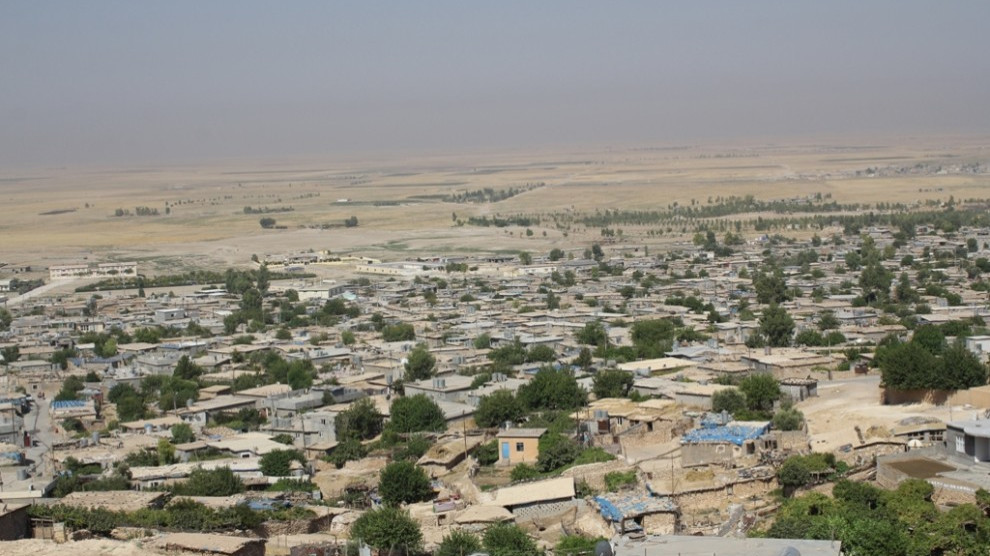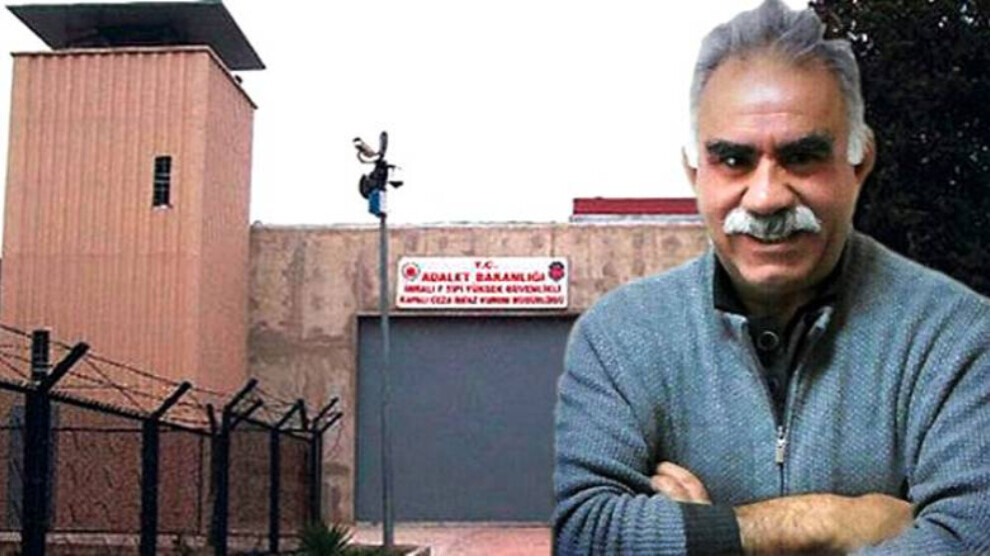
The Maxmur Refugee Camp, home to over 13,000 Kurdish refugees, has endured many hardships, including military assaults. Turkish military airstrikes on the camp on 6 December 2017 and 13 December 2018 killed 8 camp residents and injured others, and a new wave of attacks and pressure on the Maxmur Camp began on 19 July.
After the 17 July attack in the Huqqabaz restaurant in Erbil targeting employees of Turkey’s MIT (National Intelligence Agency) which left three people dead, the security forces of the Kurdistan Democratic Party (KDP) closed all ways in and out of the Maxmur Camp, which is now surrounded and under a strict embargo.
•The recent attacks began on 19 July 2019 at 00:10, when at least 3 bombs were dropped in the vicinity of the camp from the air.
•Two civilians were buried under falling earth due to the explosions. The wounded were rescued and taken to the hospital by camp residents, and both are now doing well.
•The bombing also damaged the vineyards and orchards of the camp residents
•That same day, security forces of the KDP arrested civilian residents of the camp. The families of those arrested have not yet been able to see their relatives, and no information about them is available
•Since 19 July, entering and leaving the camp has been prohibited. No one is allowed to leave the camp, not even for medical or other emergencies
•Camp residents who work outside the camp are not allowed to leave the camp, and many camp residents who work in cities like Erbil have lost their jobs
•Discrimination, harassment and psychological pressure is being exerted upon camp residents
•Ongoing threats of violence are forcing camp residents to leave the Kurdistan Region and Iraq
While the People’s Council of the Maxmur Refugee Camp has made it clear that the camp’s residents have nothing to do with the attack in the Huqqabaz restaurant, the aggression and other forms of pressure against the camp are increasing. The Maxmur Camp is now under serious threat, and the camp’s residents have little access to food, medical care, and work. The residents are increasingly isolated, their basic needs are being ignored, and they are living under a de facto state of emergency.
We, the residents of the Maxmur Camp, believe that the attacks and aggression perpetrated by the Turkish state against us will intensify as long as the government of Iraq and the United Nations (UN) remain silent. We have written many letters and issued numerous public statements concerning the ongoing embargo and deteriorating situation to representatives of relevant institutions, but collective silence concerning this threat to human life nonetheless persists. Until now, neither the government of Iraq nor the UN have shown any reaction to the unlawful aggression perpetrated by the Turkish state. According to international law, the Turkish military’s airstrikes are a clear violation of Iraq’s sovereignty, and they contravene the international understandings of the UN and the United Nations High Commissioner for Refugees (UNHRC), which is tasked with protecting refugees, displaced, and stateless people.
Our urgent call:
•We call on the UN, and particularly the UNHCR, to fulfil their duties and take action to enforce international law and conventions by holding Turkey to account for its attacks on the Maxmur Camp, home to more than 13,000 refugees. Turkey is itself a signatory to the UN Charter and international human rights agreements
•We call on the UN to immediately ensure that the embargo on the Maxmur Camp is lifted, and that the Maxmur Camp has access to food supplies and medical care
•We call for an end to Turkish military aggression against the Maxmur Camp. If Turkey is allowed to act with impunity, it will continue targeting the residents of the Maxmur Camp, resulting in more death and destruction
•The government of Iraq must take responsibility for crimes committed against civilians living within Iraq’s borders who have now been targeted by military airstrikes using Iraqi airspace. We therefore call on the government of Iraq to act against this violation of its sovereignty
•We call the international community, the defenders of human rights, and civil society to react against the illegal, deadly acts of Turkish military aggression against the Maxmur Camp
Democratic People’s Council of the Maxmur Refugee Camp
30 July 2019
For further information, please contact:
Mrs. Ayşe Mihemed, E-Mail: dalyanmavi@hotmail.com; Telefon: 00964 750 69 72 264
A Brief Overview of the Maxmur Refugee Camp
Maxmur (Makhmour) is a town 60 kilometers (40 miles) southwest of Erbil, the capital of the Kurdistan Region of Iraq. The Maxmur Refugee Camp, located in Maxmur, is a refugee camp recognised by the United Nations that, since 1998, has been home to thousands of refugees from Northern Kurdistan (Turkey). Many of the camp’s residents were forced to flee their homes in Northern Kurdistan in 1993-1994 as the Turkish state pursued a brutal campaign of aggression against the Kurdish people, denying the existence of the Kurdish people, prohibiting the expression of Kurdish identity, and suppressing Kurdish culture, while using its military to destroy thousands of villages and displace hundreds of thousands of people. Since its founding, the population of the Maxmur camp has grown to over 13,000, with many children of camp residents being born stateless.
The Maxmur Camp has a strategic location, serving as the gateway to Southern Kurdistan (Iraq) from the south. In August 2014, as ISIS was overrunning large parts of Iraq and Syria, the terrorist organisation targeted Maxmur as a step to advancing on Erbil, the capital and largest city of the Kurdistan Region of Iraq. ISIS invaded and occupied the camp, though the people of Maxmur joined other fighters in resisting the advance of ISIS, and popular militia, self-defence forces, women and youth alike, finally expelled ISIS after days of fighting, preventing a catastrophic invasion of Southern Kurdistan by mounting resistance on behalf of all humanity and not allowing ISIS to pass. After this victory, Mr. Massoud Barzani, then President of the Kurdistan Region of Iraq, visited the Maxmur Camp and expressed his thanks to the self-defence forces there for their role in this victory.

